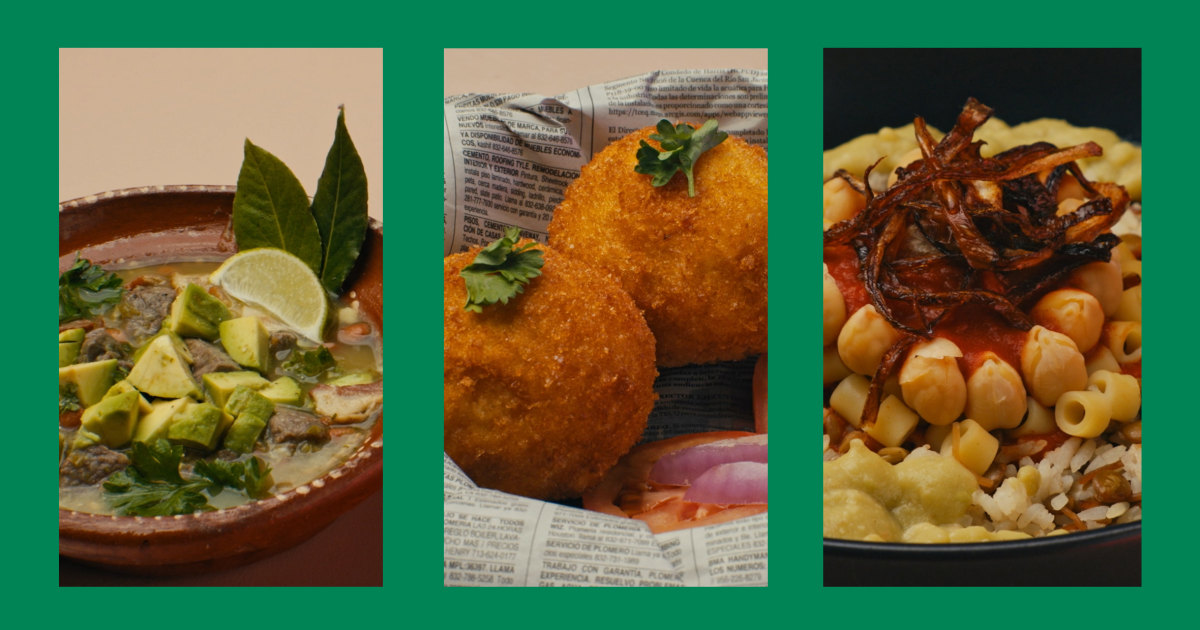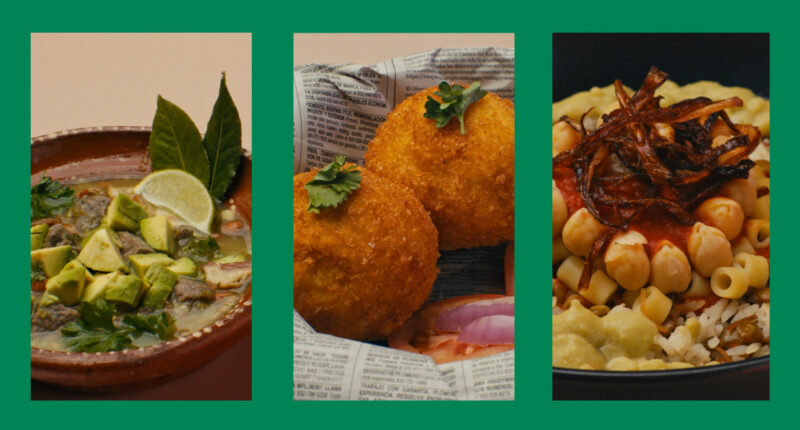
For Emmanuel Gonzalez Perez, the Mexican dish carne en su jugo — meat in its juices — is a reminder of the home he hasn’t been able to return to in over 20 years.
Gonzalez Perez, 27, of Sacramento, California, has taken his family’s recipe to “No Borders, Just Flavors!” — a YouTube cooking competition.
Produced by United We Dream, the country’s largest youth-led immigrant advocacy network, the coming show pits a young immigrant cast competing against one another as they showcase family recipes.
Contestants from first- and second-generation immigrant backgrounds prepare meals from their families’ heritages, including salted egg tofu, a common delicacy in China and Indonesia, Indian panchmel dal (lentils) and seco de pollo (chicken stew), which is common in Ecuadorian and Peruvian cuisine.
For Gonzalez Perez, crafting the meal with its flavorful bacon, beans and broth with blended tomatillos is one of the few ways he can connect to his mainland and family. “Even though we’re so far away, we’re still able to at least eat the same food with the same taste,” he said.
United We Dream has been one of the country’s most visible organizations pushing for young immigrants’ rights, credited with applying pressure for government action that culminated in President Barack Obama’s Deferred Action for Childhood Arrivals program, which allows immigrants brought to the U.S. as children but without legal status to work and study without fear of being deported.
“I think that we take for granted that food is a medium of storytelling. There’s history behind almost every dish that we eat. … Food is a space for storytelling, and it’s also a space for meaning making and identity making,” said Juanita Monsalve, the show’s executive producer and a senior creative director at United We Dream.
The production was intended to show and share diverse immigrant stories that don’t center on tragedy and hardship. It is meant to spotlight stories of joy, courage and wisdom, she said.
It’s also a pioneering YouTube entertainment show, created and distributed by an advocacy organization, according to Monsalve.
“I think that unlike other cooking shows, the show doesn’t ask people to hold a part of themselves back. And so we brought a diverse set of people with unique experiences and asked them to share all forms or all aspects of their identities through their cooking,” she said.
Contestants cook dishes based on specific categories and are judged by the host, Morelys De Los Santos Urbano, an Afro Dominican college student who founded an organization at Morgan State University to support undocumented students like her — one of the first groups of its kind at an HBCU (historically Black college and university). Other judges include guest TikTok food content creators and chefs. The contestants have 90 minutes to complete their concoctions.
Winning dishes are selected based on flavor, presentation and storytelling. Contestants are able to sabotage their competitors by choosing to hit a “dance-off button,” requiring contestants to stop cooking and dance for three minutes. Or they’re able to request help by hitting the “teamwork button,” and their competitors will help on their own dishes for three minutes.
‘Connecting with other communities’ through food
Gonzalez Perez, a community assistant at the Weber Institute of Applied Sciences & Technology high school in Stockton, California, is featured in the first episode.
Originally from Guadalajara in the Mexican state of Jalisco, Gonzalez Perez is a DACA recipient. Under the program, he can travel back to his home country with “advance parole” only for educational, employment or urgent humanitarian purposes.
Gonzalez Perez said he grew up a big fan of cooking shows but didn’t see much diversity reflected in them. By being able to participate in the show, he was able to learn other cultures through his competitors’ stories and dishes.
“I think the show does an amazing [job] in showcasing our humanity, our identity, and I think this should serve as a point for people to really [be] able to start connecting with other communities. Sometimes we tend to only eat our own food or stay within our own culture,” he said.
Monsalve has been working to humanize immigrant stories for six years. She also produced “Home is Here,” a nine-part documentary shorts series that was submitted to the U.S. Supreme Court as the first digital amicus (friend of the court) brief in support of the immigrant rights movement, which helped build support to protect DACA.
The show’s four 15-minute episodes were filmed in Houston by a diverse crew in December. Episodes will premiere at 8 a.m. ET Thursdays on YouTube starting April 20.
Source: | This article originally belongs to Nbcnews.com










